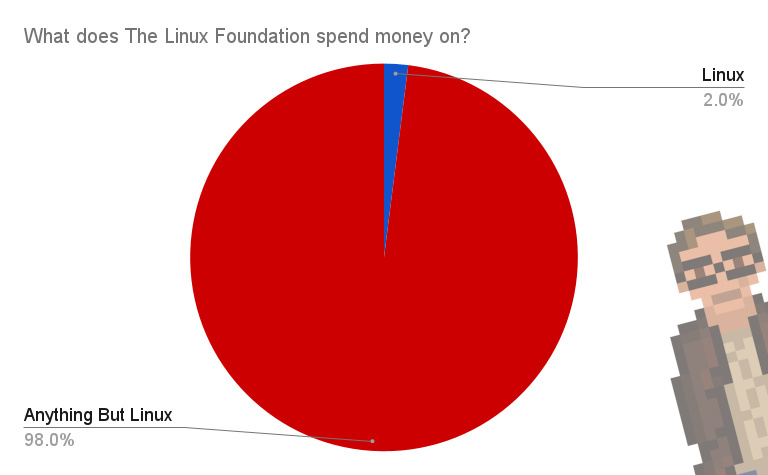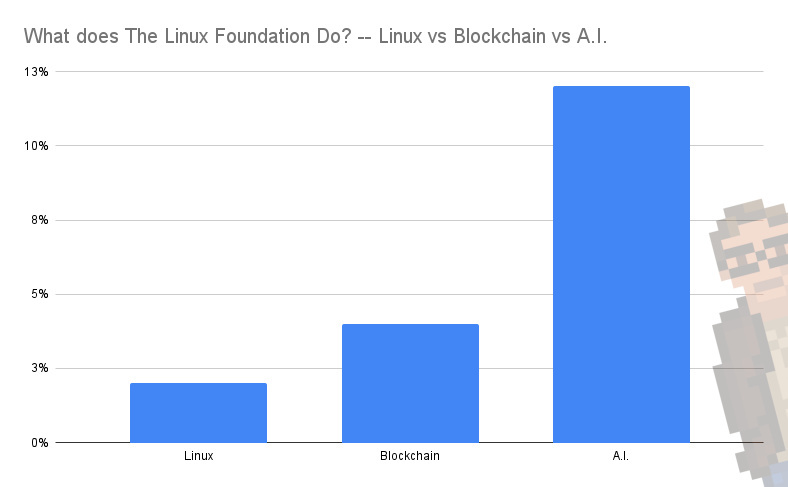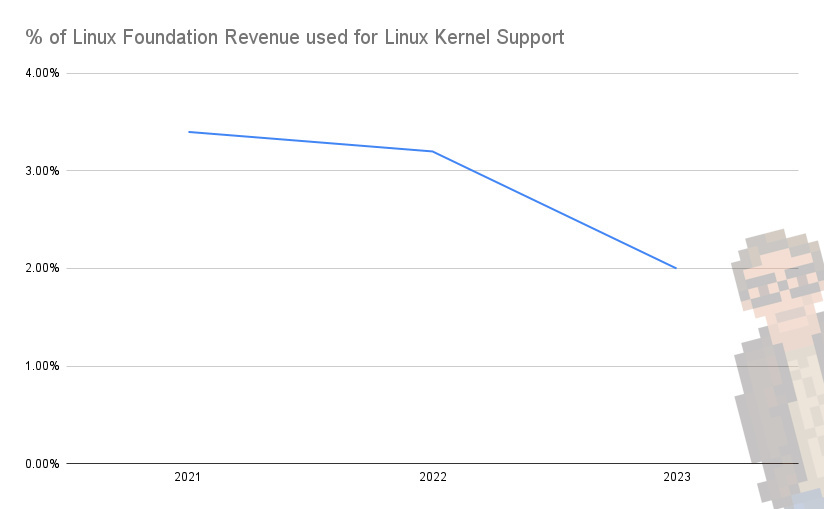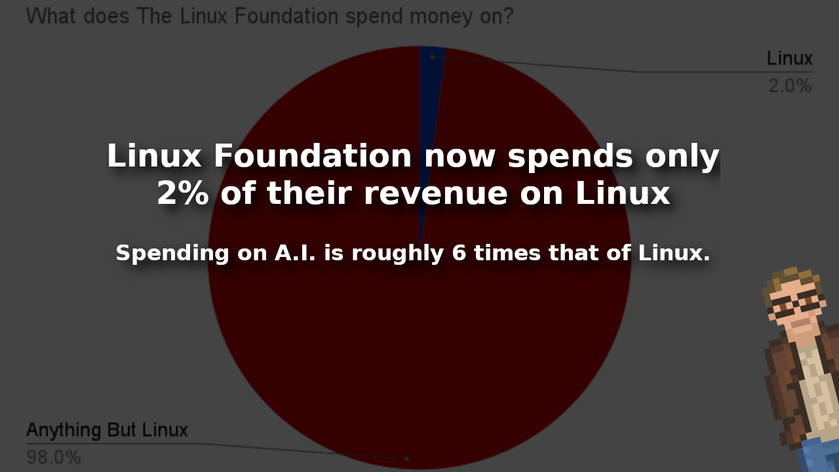The Linux Foundation has released their 2023 Annual Report... and it is an absolute doozy.
The first big headline?
As of 2023, The Linux Foundation now spends just 2% -- that's two percent -- of their revenue on their namesake: The Linux Kernel.

Ask yourself this: If there is a foundation named after a specific thing... what percentage of that foundation's revenue would you expect to be spent on said thing?
Let's say... "Save the Orange Trees Foundation". How much of their revenue should be spent on, you know, orange trees? 100%? 50%? 10%?
If "Save the Orange Trees" only spent 2% on "saving Orange Trees"... would you think that something was amis? Of course you would. And you would quickly wonder what non-Orange-Tree related things that foundation is funding.
With that in mind, let's look at Linux Foundaiton funding of Linux... compared to their investments in "Blockchains" and "Artificial Intelligence".

Your eyes do not deceive you.
- Linux : 2%
- Blockchain : 4%
- A.I. : 12%
The Linux Foundation spends roughly twice as much on Blockchain as they do on Linux... and roughly six times as much on Artificial Intelligence.
And, lest you think this is merely a blip -- and that, surely, Linux support will go up the next year -- recent history would strongly suggest otherwise. This is a singificant drop from the 2022 numbers.

I'm sensing a pattern here.
"Now wait a second," you exclaim! "Just because the revenue percentage spent on Linux is down... that doesn't necessarily mean that the total numbers are down! The Linux Foundation is growing! Maybe the total amount spent actually went up while the percentage went down?"
While it's true that The Linux Foundaiton continues to grow substantially -- now bringing in over a quarter of a Billion dollars per year (seriously) -- the total amount spent on the Linux kernel dropped roughly $400,000 in 2023. (Not surprising as The Lunduke Journal previously pointed out that lowering the total support of Linux appeared to be the goal.)
- The percentage of The Linux Foundation revenue spent on Linux dropped in 2023.
- And the total amount spent dropped as well.
- All while funding of non-Linux projects (such as AI and Blockchain) continued to dominate.
While this is the first big headline to come out of the Linux Foundation 2023 report... there's more to report on -- where The Linux Foundation revenue comes from and where it is spent.
The Lunduke Journal continues to research and dig into the 2023 filings of The Linux Foundaiton. There's a lot of weirdness in here... and we're going to get to the bottom of it.
Stay tuned.
Want more truly independent Tech Journalism? Be sure to grab at least a free membership to Lunduke.Locals.com.
Want to support this important work (and get some exclusive books, videos, and other goodies in the process)? Grab a paid subscription.
Other articles you might be interested in:















